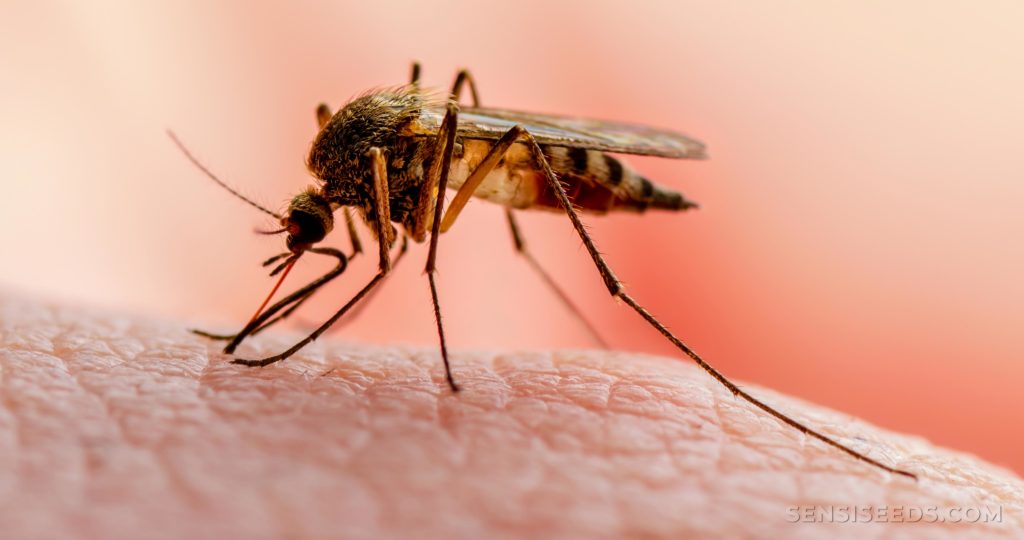an (un)helpful guide to malaria

I’ve been advised by many people around me to start my articles with something eye catching, surprising, even breath-taking. I’ve never really known what that something should be and so, this is my little experiment.
MALARIA
I believe that a word written in caps-lock is enough of an eye catch so I’m going to start with the serious business now. To actually catch the attention, let’s begin with the fact that makes diseases so interesting – death rate:
Even with the development of vaccinations and the undoubtable progressive course of pharmacy, malaria is still proved to kill almost half a million people yearly (just to compare, the current number of deaths caused by SARS-CoV-2 = the new coronavirus is approximately 450 thousands). With this rather astonishing number of dead people yearly, it shouldn’t be surprising that World Malaria Day exists, with the date 25/4 and the focus on its devastating effects and the progress in “curing the world”. And to make the impact and importance of this illness really remarkable for the 3rd time in these 7 lines – the CDC (centres for disease control and prevention) was originally formed in 1946 to fight malaria, because of it being widely spread during war conflicts.
Even though it seems as if malaria was a problem of less economically developed countries – mainly African republics, the truth is that malaria might affect every single one of us. “Airport Malaria” occurs when a malaria infected Anopheles mosquito travels by aircraft to a country for which malaria is uncommon and bites/infects person at the airport. In such cases, the patient might be in serious health risk for an obvious reason – no one suspects malaria. Often, the discovery of the true causative agent in patients in countries where malaria is not widespread is just a lucky coincidence when a staff member/the patient himself notices a mosquito bite present on the body.

Of course, not every mosquito should be taken as a danger now, no matter how unpleasant even those uninfected are :). Malaria is a serious relapsing infection caused by five related protozoans – Plasmodium falciparum (the deadliest), Plasmodium vivax (most common one), Plasmodium ovale, Plasmodium malariae and Plasmodium knowlesi and spread by the bite of infected female Anopheles mosquitoes. Just for the effect – there are approximately 3000 species of mosquitoes worldwide.
How can one mosquito bite transfer a deadly infection into your organism?
With the bite of the mosquito – immature forms of the parasite called sporozoites are injected into the bloodstream and to the liver, where they mature into schizonts. Over the course of 7-14 days, these schizonts develop into thousands of merozoites which leave liver and reenter the bloodstream with intent to invade and destroy red blood cells. These merozoites then continue to reproduce, mainly asexually.
The trouble with malaria is, that typically a patient does not experience any symptoms until 10 to 28 days after infection. The first signs are usually chills, fevers, headaches, muscle aches, nausea, diarrhea and abdominal cramps occurring in periodic attacks, which usually coincide with the release of new reproduced generation of merozoites into the bloodstream – 48 hours for P. falciparum, vivax and ovale, 72 hours for P.malariae and 24 hours for P.knowlesi. Specific case might be P.falciparum which may deteriorate very rapidly from almost no symptoms to coma, because of the infection of a large portion of the red blood cells and the adhesion of capillaries affecting the brain. Some of the sporozoites of P.vivax and P.ovale tend to remain dormant in the liver for a certain time period before realising their attack causing a relapse of the disease.

Prevention is currently considered to be the best treatment, especially thanks to the rather large selection of vaccines. Many of interesting approaches are being looked into these days, and rather successful seems to be PfSPZ vaccine made of attenuated P. falciparum sporozoites, which we use to protect healthy volunteers against malaria. None of antimalarial drugs is completely effective against the parasites, still drugs such as chloroquine, mefloquine, primaquine and artemisinin that are proved to destroy the parasites in red blood cells should be taken prophylactically.
“Everyone says I suck” – said the mosquito.
M.
Comments
Post a Comment